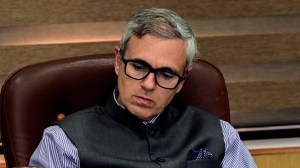Now pay to drive on congested New York roads
The controversial proposal to charge drivers in the busiest parts of Manhattan, New York, took a major step forward...

The controversial proposal to charge drivers in the busiest parts of Manhattan, New York, took a major step forward on Monday, with Mayor Michael R Bloomberg and Speaker Christine C Quinn wrenching approval from the City Council by an unusually slim margin.
Under intense pressure from the mayor, Quinn and their allies that continued almost until the voting began, council members approved the plan to charge most drivers $8 to enter a zone below 60th Street by a vote of 30 to 20, with no abstentions and one absence.
At a news conference after the vote, where Bloomberg made a rare appearance on the speaker’s side of City Hall, officials sought to play down the narrowness of their hard-won victory, among the closest of this administration in a body that typically votes in near unanimity.
Approving the proposal, Quinn said, would send a message to the Legislature that the “people who were elected to represent the New Yorkers who live in our five boroughs are sick and tired of our streets being clogged with traffic, we’re sick and tired of the children who live in our city literally having to fight to be able to breathe, and that we see congestion pricing as a solution to this problem.”
But the ultimate fate of the proposal now resides in Albany, where the intentions of lawmakers whose approval is needed remained unclear. Governor David A Paterson and the Senate majority leader, Joseph L Bruno, have expressed their support. But Assembly Speaker Sheldon Silver, who has derailed Bloomberg’s ambitions in the past, remained noncommittal, telling members of the Democratic conference on Sunday night that he would not take the issue up until the state budget was completed.
Although the administration and the Council’s leadership were able to gain support with promises of programmes, projects and political aid in upcoming campaigns — as well as threats of taking those things away— opposition remained strong. Several council members argued that it was unfair to essentially tax residents to move around their own city, that even after they voted to support the proposal, the Legislature could approve a different version, and that revenues would not necessarily go toward the promised transit improvements.







- 01
- 02
- 03
- 04
- 05
























